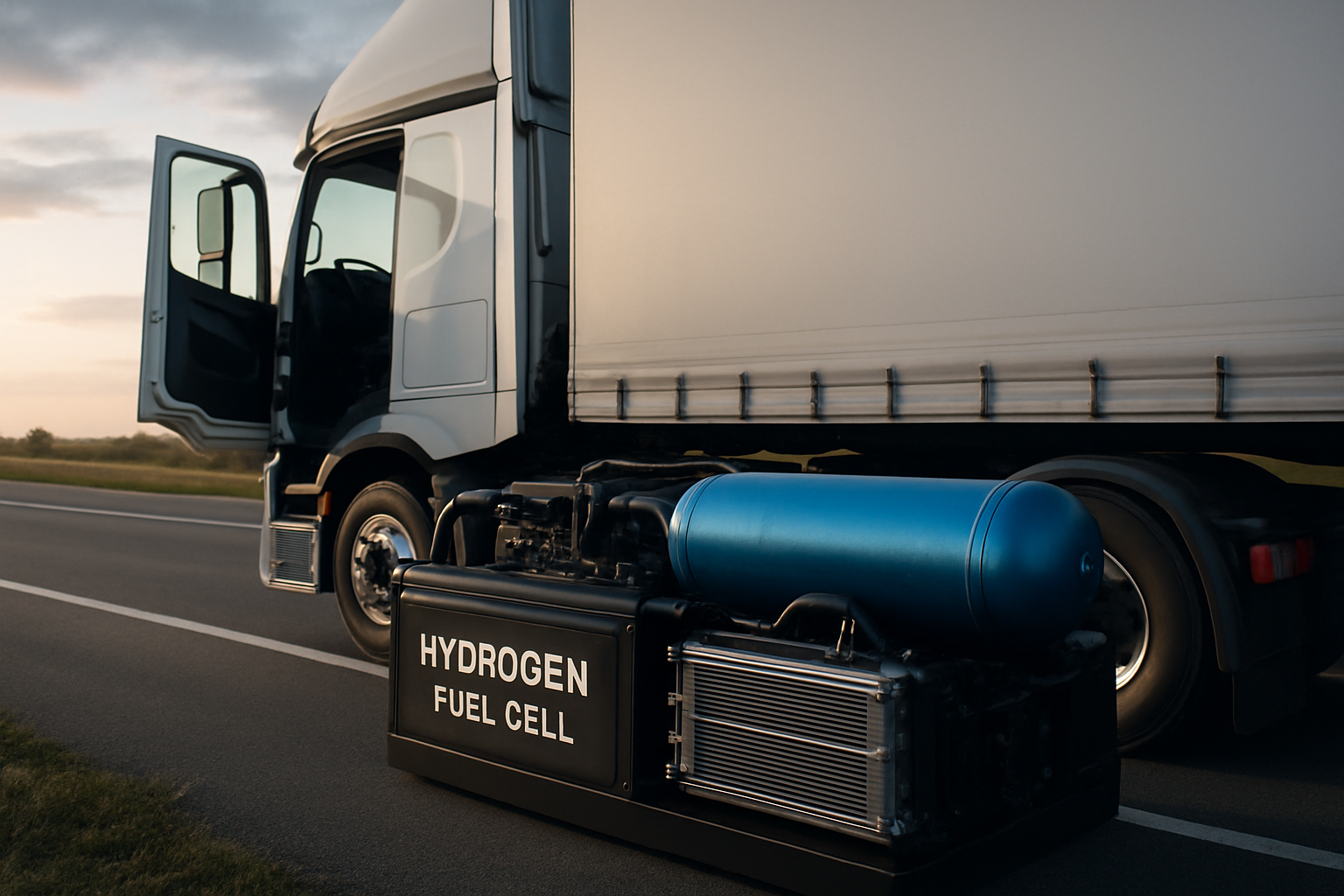Hydrogen Fuel Cells: The Future of Long-Haul Trucking
In the realm of heavy-duty transportation, a quiet revolution is taking place. Hydrogen fuel cell technology is emerging as a promising solution for long-haul trucking, offering a clean and efficient alternative to traditional diesel engines. This innovative power source combines the environmental benefits of zero-emission vehicles with the range and refueling speed that trucking fleets demand. As the automotive industry seeks sustainable solutions for goods transportation, hydrogen fuel cells are poised to reshape the landscape of commercial trucking.

How Hydrogen Fuel Cells Work in Trucks
At the heart of a hydrogen fuel cell truck is a system that converts hydrogen into electricity through an electrochemical process. Hydrogen is stored in high-pressure tanks and fed into the fuel cell stack, where it reacts with oxygen from the air. This reaction produces electricity to power the truck’s electric motors, with water vapor as the only emission. The process is highly efficient and allows for continuous operation as long as hydrogen is supplied.
Advantages Over Traditional Diesel Engines
Hydrogen fuel cell trucks offer several key advantages over their diesel counterparts. Firstly, they produce zero tailpipe emissions, significantly reducing the environmental impact of freight transport. They also operate more quietly, potentially allowing for extended delivery hours in urban areas. Additionally, hydrogen fuel cell powertrains have fewer moving parts than internal combustion engines, which could lead to reduced maintenance costs and increased uptime for fleet operators.
Infrastructure: The Key to Widespread Adoption
One of the primary challenges facing hydrogen fuel cell trucks is the need for a robust refueling infrastructure. While the technology itself is promising, its success hinges on the availability of hydrogen filling stations along major trucking routes. Governments and private companies are beginning to invest in this infrastructure, recognizing its potential to decarbonize the transport sector. As more hydrogen stations come online, the viability of fuel cell trucks for long-haul operations will increase dramatically.
Real-World Trials and Early Adopters
Several major truck manufacturers and logistics companies are already conducting real-world trials of hydrogen fuel cell trucks. These pilot programs are crucial for assessing the technology’s performance under actual operating conditions and identifying areas for improvement. Early results have been encouraging, with some trucks demonstrating ranges of over 600 miles on a single tank of hydrogen. As these trials progress, we can expect to see refinements in fuel cell efficiency, hydrogen storage capacity, and overall vehicle design.
Economic Considerations and Total Cost of Ownership
While the initial cost of hydrogen fuel cell trucks is currently higher than that of diesel trucks, proponents argue that the total cost of ownership over the vehicle’s lifetime could be competitive. Factors such as lower fuel costs, reduced maintenance needs, and potential government incentives for clean transport solutions could offset the higher upfront investment. As production scales up and technology advances, the cost of fuel cell systems is expected to decrease, further improving the economic case for hydrogen-powered trucks.
Environmental Impact and Carbon Footprint
The environmental benefits of hydrogen fuel cell trucks extend beyond zero tailpipe emissions. When hydrogen is produced using renewable energy sources such as wind or solar power, the entire fuel cycle can be nearly carbon-neutral. This green hydrogen production aligns with global efforts to reduce greenhouse gas emissions and combat climate change. As the world seeks to decarbonize the transport sector, hydrogen fuel cells offer a pathway to sustainable long-haul trucking without compromising on performance or operational requirements.
Challenges and Technological Hurdles
Despite its promise, hydrogen fuel cell technology for trucking still faces several challenges. The production and distribution of hydrogen need to be scaled up significantly to meet potential demand. Additionally, improving the efficiency of fuel cells and reducing their cost remains a focus for researchers and engineers. Safety concerns surrounding the storage and handling of hydrogen must also be addressed to ensure widespread public acceptance of the technology.
The Road Ahead: Integration with Smart Logistics
As hydrogen fuel cell trucks become more prevalent, they are likely to integrate with other emerging technologies in the transport sector. Smart logistics systems, platooning capabilities, and advanced route optimization could further enhance the efficiency of hydrogen-powered fleets. This synergy between clean propulsion and intelligent transport systems points towards a future where long-haul trucking is not only environmentally friendly but also more efficient and cost-effective than ever before.





